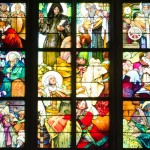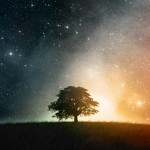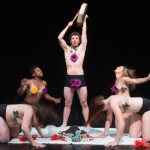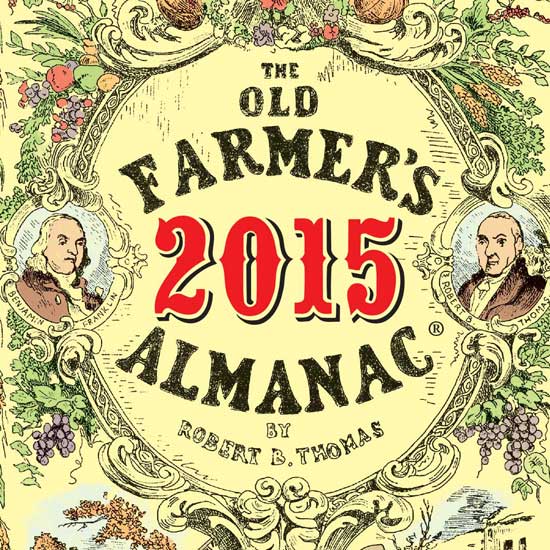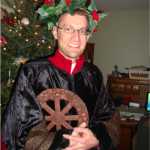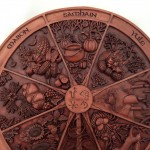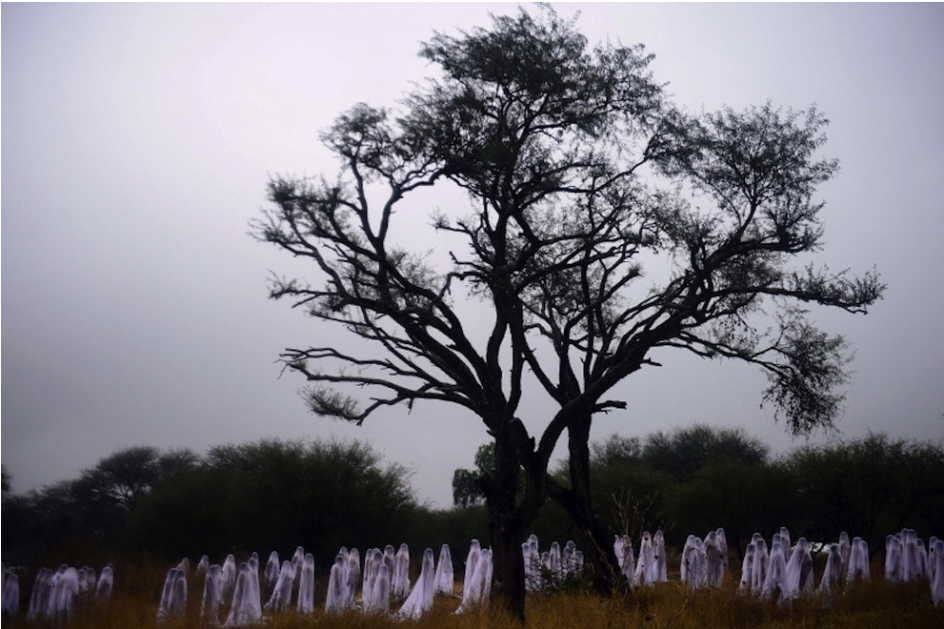
If you follow my blog, you’ll know I’m a bit of an iconoclast when it comes to the Wheel of the Year. I’m a big advocate of customizing our celebration of the Pagan High Holy Days to the local geography and climate one lives in. So, because I live in the midwest, I don’t celebrate the beginning of spring on Imbolc when there’s still snow on the ground. And when I invoke the element of water, I face north, because that’s were the nearest large body of water (Lake Michigan) is in relation to me.
But I also believe it makes sense to synchronize our High Days with the culture in which we live, at least to a certain extent. Jason Mankey has written previously about what he calls the “Eight Great American Sabbats” — basically the high “holy” days of secular American culture. There is a certain (very rough) correspondence between these American holidays and the Neo-Pagan Wheel of the Year:
Winter Solstice (Yule) ~ Christmas/New Year’s
Winter Cross-Quarter (Imbolc) ~ Groundhog’s Day
Spring Equinox (Ostara) ~ Easter/Passover
Spring Cross-Quarter (Beltane) ~ Memorial Day (unofficial start of summer)
Summer Solstice (Litha) ~ Independence Day
Summer Cross-Quarter (Lughnasadh) ~ ?
Fall Equinox (Mabon/Herfest) – Labor Day (unofficial start of fall)
Fall Cross-Quarter (Samhain) ~ Halloween
Some of these Pagan High Days correspond better to their secular mates than others. So it’s easier to ignore the coincidence of Beltane and Memorial Day or Mabon and Labor Day (since the dates don’t match up closely) than it is to ignore the coincidence of Yule and Christmas or — what I want to talk about today — Samhain and Halloween.
I’ve always liked Halloween. Next to Christmas, it is my favorite American holiday. For one thing, Halloween is the only time of the year a straight guy can be flamboyant without apology in our homophobic American culture. I love the costumes, the trick-or-treating, and the whole scary-but-fun atmosphere. So when I became Pagan, I was ready to embrace Halloween as a Pagan High Holy Day. And I’ve got to say I was disappointed when I found out that most Neo-Pagans celebrate Samhain as a kind of Pagan “Day of the Dead” or All Souls Day, with little to no connection to the secular celebration of Halloween.
But Halloween is ready-made for Pagan appropriation. Sure, it’s completely secularized — just like much of Christmas is — but despite its secular origins, Halloween just begs to be Pagan-ized. For one thing, it’s the only time of the year when we can do weird things around a bonfire at night in our backyard and not draw too much attention to ourselves. And it’s a great example of what Jason Mankey calls “Rustic Paganism” — like Morris Dancing, it isn’t historically pagan, but it feels pagan.
I understand that many Neo-Pagans associate the day with their ancestors because of the idea that the “veil between the worlds” is thinnest on this day. But that’s true of Beltane too, and Beltane falls close to Memorial Day — a day on which many Americans honor, not just those who died in war, but all their ancestors. For some Americans, it is the only time they visit the graves of family. I do think it is important to have a Pagan holy day honoring our ancestors. But we could do that at Beltane or Memorial Day. Or we could do something like the Catholic All Hallows Tridium and celebrate All Hallows on October 31st and then do a Pagan “All Souls” Day later, like on November 2.
There’s just nothing about Halloween makes me think of my grandparents or great-grandparents. To me, the high-spirited, festive nature of Halloween stands in sharp contrast with the somber feeling of visiting graves on Memorial Day. I find it hard to maintain the an attitude appropriate to honoring my ancestors when everyone else around me is having a kind of second Mardi Gras.
Nor do I associate Halloween/Samhain with the New Year, like some Neo-Pagans do. I have my doubts about whether Samhain really was the New Year for ancient Celts, but in any case, it was much more common for ancient pagans around the world to observe the New Year on the winter solstice or the spring equinox. Yule just makes more sense to me as the Pagan New Year.
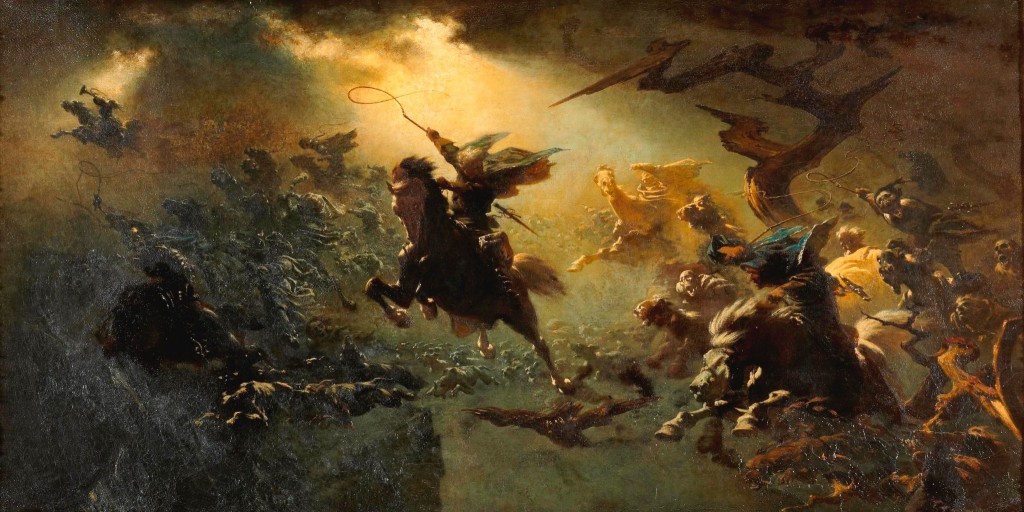
Rather than the ancestors, Halloween calls to my mind another Pagan motif: the Wild Hunt. For me, Halloween marks the time on the Wheel of the Year when the Dark God is crowned as the Holly King and leads the Wild Hunt as it emerges from Underworld to roam the winter countryside, with the Dark Queen riding beside him in her devouring aspect as the Huntress. I explain the connection to my kids this way:
“The legend of the Wild Hunt is behind many of the traditions of Halloween. According to legend, people wear masks to scare the ghosts and goblins that come out of the underworld at this time of the year. Because, if the Wild Hunt catches a person walking alone at night during this time of the year, it will carry them off to the underworld and they will become a part of the Wild Hunt themselves. But if you are wearing a scary mask, the Wild Hunt will think you are one of them, and will pass you by.”
Of course, this is not the true history behind trick-or-treating, but I I think the symbolism fits nicely. The correspondence is so strong for me that I break my general rule about celebrating the cross-quarters on their actual celestial date. (The Autumn Cross-Quarter falls on November 7 this year.)
I even like the name “Hallow’een” or “All Hallow’s Eve” — much better than Samhain, which no one can pronounce anyway. “Hallow” means “holy”, so All Hallows means “All Holy”, and to me that fits with the meaning of the day as a time for remembering the dark gods, because to Pagans they are holy too. The name “Hallow’een” says to me, “It’s all ‘hallow’ or sacred, even our ‘dark’ side.” It’s the perfect time for letting our Shadow side out for a ride.
Tell me what you think. Is Halloween a holy day for you? Do you experience any dissonance with honoring the ancestors while others are trick-or-treating?

